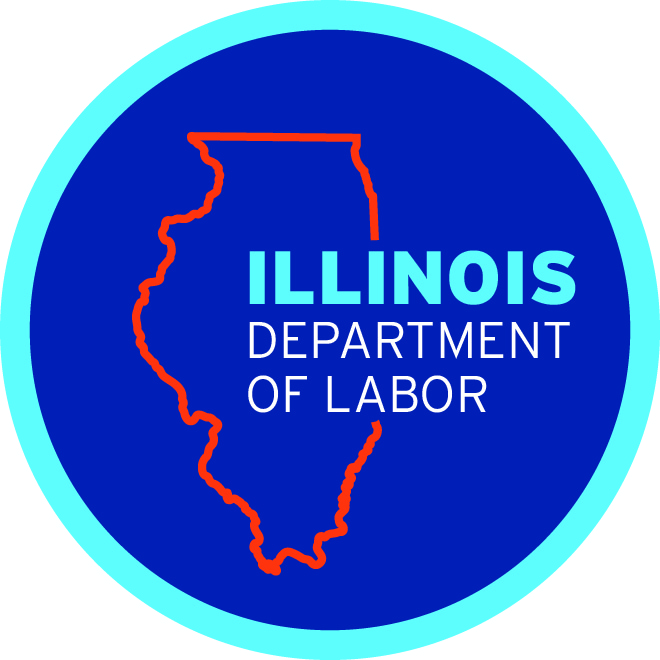Freelance Worker Protection Act
- 1. What is the Freelance Worker Protection Act?
- 2. When does the FWPA go into effect?
- 3. I am a freelance worker. How do I prepare a contract?
- 4. What if I have already performed work without having a formal contract?
- 5. Who is considered a freelance worker under the law?
- 6. Who is not considered a freelance worker under the law?
- 7. I am an employee, not a freelance worker. How can I claim my unpaid wages?
- 8. What do I do if have been misclassified as a freelance worker but am actually an employee?
- 9. Does the law only apply to work performed in Illinois? Are remote workers covered?
- 10. When can I file a complaint under the FWPA?
- 11. What happens after I file a complaint?
- 12. Will the Department of Labor help collect the money my contracting entity owes me?
The FWPA provides protections for freelance workers in Illinois. Under the law, freelance workers are entitled to all of the following:
A written contract (see templates here) that includes:
Name and contact information of both the contracting entity and freelance worker
Itemization of products and services
Rate and method compensation
Date of compensation due
Dates of services to be provided
Full payment for the services by the due date in the contract, or if the due date is not specified, within 30 days of completing the services outlined in the contract
Protection from retaliation and/or other negative action for exercising rights under the FWPA
The law goes into effect on July 1, 2024, and applies to freelance contracts signed after that date.
The Department of Labor provides a model contract that you and your contracting entity can use as a basis for your agreement. The contracting entity must provide a written contract to the freelance worker upon the freelance worker’s request. Of course, you may wish to hire an attorney to help write or review the contract for you.
A contract does not necessarily have to follow a certain format in order to be valid, and can include a paper document, an email, text message, or some other communication that describes goods or services that the freelance worker promises to provide in exchange for payment from the contracting entity, that both parties (freelance worker and contracting entity) have agreed to.
Freelance workers must meet all of the following criteria under the law:
Independent contractor (see the independent contractor test here)
Providing products or services in Illinois or works for a contracting entity located in Illinois
Value of work equal to or greater than $500 over a 120-day period (can be multiple contracts)
Freelancers can work in any industry, but common industries for freelancers include:
Film, video, and photography
Graphic and web design
Social media management and content creation
Media and journalism
Translation services
Personal care (hair stylists, makeup artists, etc.)
Exceptions include:
Construction workers
Individuals performing services as an employee under Section 10 of the Employee Classification Act
Employees as defined under Section 2 of the IWPCA
Individuals that are contracted by the US government, the State of Illinois, a unit of local government including school districts, or any foreign government
If you are an employee, you are protected under the Wage Payment and Collection Act. You can learn more about the law or file a complaint here: https://labor.illinois.gov/laws-rules/fls/wage-payment-collection.html
Employees are protected from misclassification, which occurs if an employer treats workers as "independent contractors" when they are employees, under the Employee Classification Act. You can learn more about the law or file a complaint here: https://labor.illinois.gov/employees/employer-misclassification-of-workers.html
The law applies to freelance workers who are hired to provide products or services in Illinois and/or who are hired by a contracting entity located in Illinois. If either the remote freelance worker or the contracting entity is located in Illinois, the law applies.
You can file a complaint under the FWPA if at least one of the following statements is true:
I was denied a written contract from the contracting entity, or the contract did not include all of the required information.
I did not receive full payment for the services by the due date in the contract, or if the due date is not specified, within 30 days of completing the services outlined in the contract.
I was retaliated against for exercising my rights under the FLWPA.
Please note that complaints must be filed within 2 years after the date the final compensation was due.
IDOL will administer the complaint by facilitating the exchange of information between the freelance worker and the contracting entity. The process is:
1. The freelance worker files a complaint with IDOL.
2. Within 20 days of receiving the complaint, the Department shall “initiate the information facilitation process” by sending the contracting entity a written notice of the complaint, or by notifying the freelance worker that the complaint lacks jurisdiction.
3. If the contracting entity does not respond, then it creates a “rebuttable presumption in any civil action commenced in accordance with this Act that the contracting entity committed the violations alleged in the complaint.” IDOL will provide the freelance worker with documentation of this.
4. If the contracting entity does respond, IDOL will send the freelance worker a copy of the contracting entity’s response and information about filing an action in court.
5. If both parties agree, the IDOL may offer the opportunity to resolve the complaint through mediation.
6. If the issue is not resolved, the freelance worker may bring a private action in court against the contracting entity.
7. The Department may follow up with the parties to confirm whether the issue is resolved.
No. Although the Department may help you communicate with the contracting entity that hired you regarding the compensation owed, the contracting entity must pay the freelancer directly.

